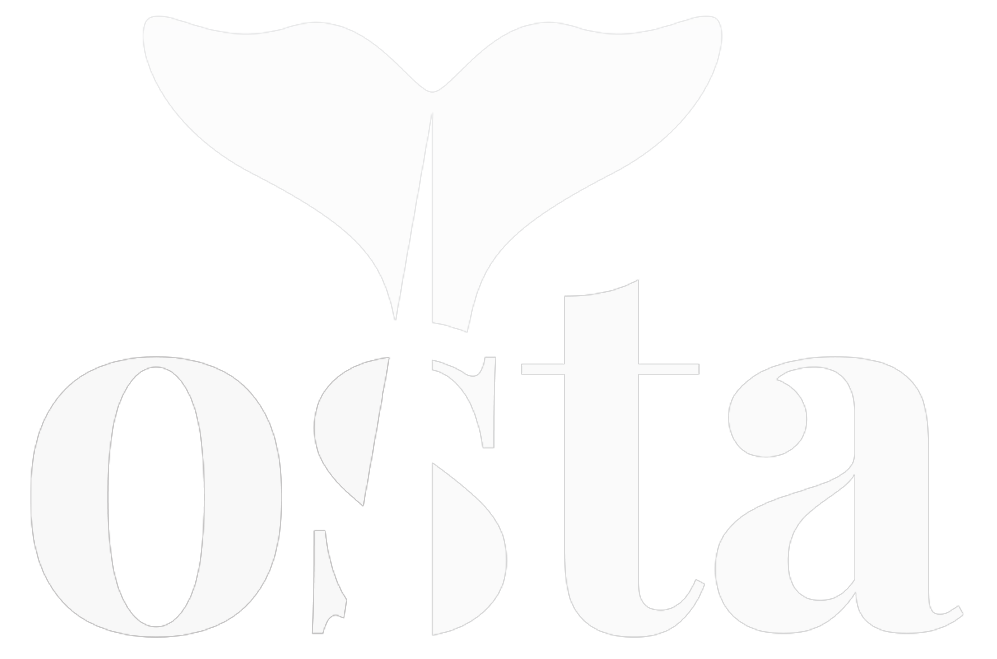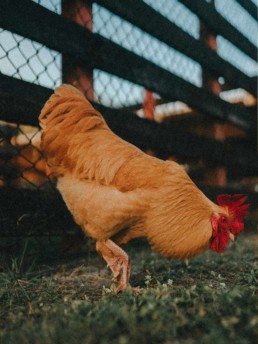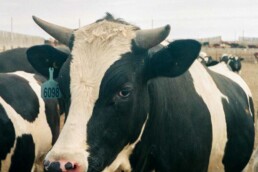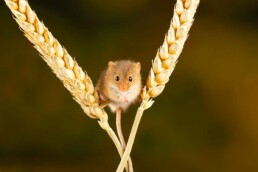Unlocking Animal Happiness
Valuing Current Cage-Free Conditions for Broiler Chicken and Awaiting a Similar Transition for Laying Hens by 2036
Currently in Flanders, broiler chickens are not kept in cages. However, about 3.3 million laying hens are housed in enriched cages. This practice is set to change in 2036 when a comprehensive ban on all cages, including enriched ones, will be implemented.
46.4 Million Animals
37.6 Million Broiler Chicken
3.3 Million Laying Hens
__
Flanders houses a population of 37.6 million broiler chickens.[1] The types of chickens include day-old chicks, broiler chickens, and broiler breeders, none of which are kept in cages.[2]
Currently, 51 laying hen farms in Flanders house approximately 3.3 million laying hens in enriched cages.[3] However, this will change in 2036, when a ban will be placed on all types of cages, including enriched cages.
According to the Flemish Animal Welfare Code, from January 1, 2036, all cage systems for laying hens, including for breeders, will be prohibited.[4]
Animal Welfare in Cages is Inadequate
The shift from cage systems to non-cage systems for laying hens is driven by the recognition by the Flemish legislator that cages fail to meet suitable standards for animal welfare. This reasoning is expanded upon in the Explanatory Note accompanying the Flemish Animal Welfare Code:
‘Intensification of agriculture [5] has resulted in a higher density of animals per unit of space. In the poultry industry, for example, laying hens were once housed in battery cages. These cages have been banned across the European Union since 2012, in accordance with European Directive 1999/74/EC, which establishes ‘minimum standards for the protection of laying hens’. Since then, poultry farmers have transitioned to enriched cages, free-range, or aviary systems, with the option of free-range access.
However, it’s clear that cages do not provide an acceptable level of animal welfare. This assertion is backed by the report from the European Food Safety Authority (EFSA), titled ‘Welfare of Laying Hens on Farm’, adopted on December 14, 2022, and published on February 21, 2023. The report concludes: ‘All birds should be housed in non-cage systems’. This recommendation stems from the observation in the report that ‘In cage systems, laying hens experience significant welfare issues such as the ‘inability to perform comfort behaviour’, ‘inability to perform exploratory or foraging behaviour’ and ‘restriction of movement’. In non-cage systems, these welfare issues are considered slightly relevant.’
As a result, Article 22, in conjunction with article 86, 4° of the Flemish Animal Welfare Code, mandates a gradual elimination of cage systems for chickens. This prohibition applies to both laying hen farms and breeding farms, except for animals that need medical isolation. The temporary separation or compartmentalization of certain animals does not constitute a breach of the cage system ban. Moreover, the use of tiers in open aviary systems continues to be allowed.’
The ban will be enforced for existing holdings from January 1, 2036 (as per Article 86,4°). This timeline would provide poultry farmers with a reasonable window [6] to make necessary adaptations and reorient their operations. [7]
[1] Meat chicken refers to any breed of chicken that is raised specifically for meat production. Broiler chicken, on the other hand, is a specific type of meat chicken that is bred and raised for its quick growth and high meat yield, often ready for market in six to seven weeks. The number of broiler chicken in Flanders can be found in the ‘Animal Healthcare Flanders, Yearly Report 2023’ (in Dutch) 7 [2] The information, that meat chickens (including broiler breeders) are not kept in cages in Flanders, was provided through email correspondence with Tom Van den Bogaert from the Flemish Agency of Agriculture and Fishing. In Europe, day-old chicks and broiler chickens are typically not kept in cages. The only exception to this is broiler breeders, which are generally housed in cages. This is corroborated by the EFSA report titled ‘Welfare of Broilers on Farm’ (14 December 2022), specifically on pages 3, 14, 25-26.
[3] A. De Grande et al. Their report also assesses the economic impact of phasing out enriched cages. The original report is in Dutch, titled ‘Economische impactberekening van uitfasering verrijkte kooien’ , 23.
[4] Article 22 (in conjunction with Article 86, 4°) of the Flemish Animal Welfare Code provides:
- Article 22: ‘Chickens in laying hen farms or rearing farms are not housed in cage systems. The Flemish Government can determine the modalities of this and can provide accompanying measures. Contrary to the first paragraph, the prohibition mentioned in the first paragraph does not apply to animals that need to be isolated for medical reasons.”
- Article 86,4°: ‘This decree enters into force on January 1, 2025, with the exception of article 22, which enters into force on January 1, 2036. Despite this, the article comes into force on January 1, 2025 for those farms that wish to replace their existing cage systems before January 1, 2036 or want to use cage systems for the first time, and for which the environmental permit application was not submitted before July 14, 2023.’
[5] Post-World War II (OSTA comment).
[6] The transition period’s adequacy is a subject of discussion. Meyrem Almaci proposed amendments to the Code, suggesting that the deadline for the introduction should be moved up to 2028, rather than the current year of 2036. These amendments, however, were not adopted. The European Commission has shown its support for the citizens’ initiative ‘End of the Cage Age’ and is set to impose stricter rules in the future. Yet, there is no need to wait for these new rules to be put in place. In fact, Wallonia has already set a precedent by stipulating the year 2028 in article D.27 of the Walloon Animal Welfare Code of October 4, 2018 (Amendment No. 18, Article 22, Amendments to the draft decree of animal welfare, submitted on April 17, 2024, 2030 (Legislative Session 2023-2024) No. 3).
[7] The Flemish Code’s Explanatory Note explains that the transition period takes into account the depreciation of current installations. This refers to the lifespan and value of the enriched cage systems in use today. Owners have invested in these systems. Farms that replace their cage systems or use a cage system for the first time before 1 January 2036 (and haven’t applied for environmental and zoning permits before 14 July 2023) must comply with Article 22 by 1 January 2025. The details are in the Flemish Code Animal Welfare, Explanatory Memorandum to Article 22 (2030 (2023-2024) 1).








